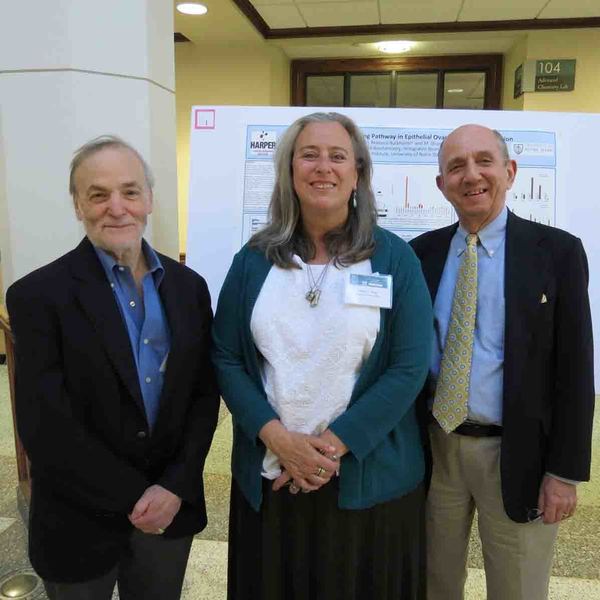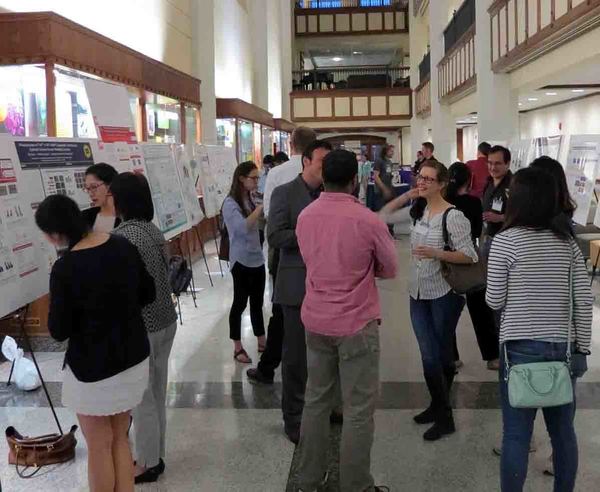
Over 70 researchers from a dozen universities in the Midwest gathered at Notre Dame for the 3rd Midwest Ovarian Cancer Coalition (MWOCC)* workshop to discuss the latest advances in ovarian cancer research. With a welcome from Mr. Gene Pranzo, Trustee of conference sponsor The Leo and Anne Albert Charitable Trust, attendees were charged to uphold the wishes of the trust and “do good for humanity”. The good works of the attendees were highlighted in a speed poster session with 3-slide teasers designed to highlight posters in the evening session. A Keynote address was given by Dr. Stephen Baylin, Ludwig professor of oncology and medicine, Johns Hopkins University and Sidney Kimmel Comprehensive Cancer Center. Baylin’s presentation summarized the elegant research from his laboratory and the Van Andel Research Institute – Stand Up to Cancer Epigenetics Dream Team in the area of epigenetic therapy. New advances suggest the ability to more precisely fine-tune combinations of epigenetic therapy with immunotherapy to provide better outcomes for women with advanced ovarian cancer.

Additional oral presentations by trainees discussed aspects of the ovarian tumor microenvironment including matrix proteins, bioactive lipids, cancer stem cells, and cancer specific gene and protein signatures. Research in model animal systems evaluated the contribution of gene mutations in fallopian tube and ovary to cancer development, mouse models of a rare form of ovarian cancer - granulosa cell tumor, and the impact of ‘host’ factors including oxidative stress and parity on tumor progression. A unique feature of the MWOCC workshop is the undertaking of a multi-institutional collaborative project following each conference. The first such project summarized the wealth of ovarian cancer experimental models, particularly 3-dimensional organotypic and in vivo models, developed by the group (Lengyel et al., Oncogene 2014;33:3619-33). Following the second workshop, a group study highlighting the in vivo growth characteristics of a large panel of well-characterized ovarian cancer cell lines was published (Mitra et al., Gyn Oncol 2015; 138:372-7). Both studies provided useful and comprehensive resources for the greater ovarian cancer research community. The group will tackle two projects this year, a comprehensive review of the unique ovarian tumor microenvironment and an experimental study on chemoresistance. The highlight of the meeting was a discussion led by ovarian and colon cancer survivor Sharon Gieselman and cancer education advocate Jennifer Lane-Riefler.

Sharing the moving story of her personal cancer journey, Gieselman charged researchers in the audience to “stay involved” in both research and advocacy and to remember that lives are directly impacted on a daily basis by the results of our research.
*formerly designated Indiana-Illinois End Epithelial Ovarian Cancer Coalition (IIEEOCC)
Originally published by M. Sharon Stack, PhD at harpercancer.nd.edu on May 24, 2016.